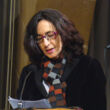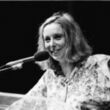Saul and Patsy: A Novel
Author
Publisher
Knopf Doubleday Publishing Group
Publication Date
2007
Language
English
Description
1. How does the town of Five Oaks, Michigan figure as a character in the novel? How is it a particularly Midwestern town? How do the various town folk—whom Saul refers to as “rural Gentiles, connoisseurs of rifles, violence, and piety”—play into the narrative? Harold the barber, the local high school teachers and students, Mrs. O’Neil the lonely neighbor, the various students, Susan the bank teller, Brenda Gordy’s aunt? 2. 2. Saul and Patsy are definitely outsiders in this small Midwestern town. What sets Saul apart from the other inhabitants? Does his Jewishness play a role, or is this largely in Saul’s imagination? By the end, are they Midwesterners as well? 3. 3. Saul views himself as a missionary, “bringing education and the higher enlightenments to rural benighted adolescents.” What exactly is a missionary? Do you think Saul is one? Later in the novel when asked if he is going to stay in the Midwest, Saul responds, “I have to. I’m on a mission. We are.” What is this mission? Is it ultimately to save himself or others? And from what? 4. Discuss the relationship between Saul and Patsy. Compare and contrast them. Why is theirs such a fulfilled and satisfied relationship despite their different views on love? “In Saul, love took the form of desperation-to-share.” For Patsy, “she might have loved anybody, but it had turned out to be this man…there was certainly no logic to it.” What determines and then later threatens to undermine their marriage? What is the author saying of love? Describe the other marriages in the book, that of Saul’s parents, and the McPhees. 5. 5. How does having a child transform Saul and Patsy’s life? Do they change individually and/or as a couple? What do they learn about each other in the process of accepting a third person into their world, and growing from a couple into a family? 6. After meeting the McPhees, Saul “began to be obsessed with happiness” and realized “compared to others, he was, except for his marriage, actually and truly unhappy.” He becomes preoccupied with the McPhees and their happiness without really knowing much about their lives. Why the jealousy and obsession? 7. Saul and Patsy overflows with references to written words. Saul teaches writing at the local high school and later writes a newspaper column. Saul and Patsy adore Scrabble and crossword puzzles. Various authors are referred to and quoted. Saul writes on Patsy’s body. Gordy leaves notes for Saul. What is the importance of the written word in the novel? Give examples of the success and the failure of words in the novel. 8. Discuss the theme of betrayal in Saul and Patsy . What types of betrayal occur? What are the causes and consequences of them? Are the betrayals justified? Is anyone innocent? As a teacher, does Saul betray Gordy? As a brother, does Howie betray Saul? Does Patsy betray Delia? 9. Does Gordy Himmelman represent or symbolize something larger than himself, a troubled teen, to Saul and to the novel as a whole? What? Why is he obsessed with Saul, and why does he commit suicide in front of him? 10. 10. What does Saul learn about himself and his relationship with Patsy and his family through his experiences with Gordy? Through his experiences in Five Oaks? What does Patsy learn? 11. Why do you think the adolescents of Five Oaks react the way they do after Gordy Himmelman’s death? Is it indicative of Five Oaks, the Midwest, our society as a whole? Do you think the reaction is realistic? 12. Discuss the role and importance of the media and television in the novel. Is the author making a social commentary on the media and its omnipresence? 13. At various points throughout Saul and Patsy , characters invade other characters’ privacy. Give some specific instances of characters trespassing or spying on other characters. What is really going on in these situations? 14. Discuss the significance of the conclusion. Why does the novel end this way? What do you think is in the future for Saul and Patsy?
More Details
Contributors
Baxter, Charles Author
ISBN
9780307427618
Subjects
Subjects
Excerpt
Loading Excerpt...
Similar Titles From NoveList
NoveList provides detailed suggestions for titles you might like if you enjoyed this book. Suggestions are based on recommendations from librarians and other contributors.
These books have the appeal factors reflective and lyrical, and they have the genres "psychological fiction" and "literary fiction"; the subjects "married people" and "extramarital affairs"; and characters that are "complex characters."
These books have the appeal factors reflective, moving, and stylistically complex, and they have the genres "psychological fiction" and "literary fiction"; and the subjects "married people" and "extramarital affairs."
These books have the appeal factors stylistically complex, character-driven, and first person narratives, and they have the theme "toxic relationships"; the genres "psychological fiction" and "literary fiction"; and the subjects "obsession" and "voyeurism."
These books have the appeal factors reflective and lyrical, and they have the genres "psychological fiction" and "literary fiction"; the subjects "obsession" and "compulsive behavior"; and characters that are "complex characters" and "authentic characters."
These books have the appeal factors haunting, lyrical, and nonlinear, and they have the genres "psychological fiction" and "literary fiction"; the subjects "motherhood" and "mothers"; and characters that are "complex characters" and "authentic characters."
These books have the appeal factors reflective and lyrical, and they have the genres "psychological fiction" and "literary fiction"; the subjects "married people," "married women," and "extramarital affairs"; and characters that are "complex characters."
These books have the appeal factors stylistically complex, and they have the genres "psychological fiction" and "literary fiction"; the subjects "married people" and "obsession"; and characters that are "sympathetic characters" and "complex characters."
These books have the appeal factors reflective and lyrical, and they have the genres "psychological fiction" and "literary fiction"; and the subjects "married people," "extramarital affairs," and "marital conflict."
These books have the appeal factors reflective, lyrical, and multiple perspectives, and they have the genres "psychological fiction" and "literary fiction"; the subjects "married people," "husband and wife," and "married people and secrets"; and characters that are "introspective characters" and "complex characters."
These books have the appeal factors reflective, stylistically complex, and unnamed narrator, and they have the genres "psychological fiction" and "literary fiction"; the subject "obsession"; and characters that are "complex characters."
Readers looking for quiet, introspective, and richly textured character studies will enjoy these lyrical books set in rural Michigan. The wistful meditations and intimately rendered psychological turmoil create elegiac portraits of complex individuals seeking fulfillment. -- Derek Keyser
The Issues of fear, social responsibility, and the question of identifying the real villain are prominent in Frankenstein and Saul and Patsy. The former is a 19th-century monster tale, while the latter is a more contemporary morality tale. -- Katherine Johnson
Similar Authors From NoveList
NoveList provides detailed suggestions for other authors you might want to read if you enjoyed this book. Suggestions are based on recommendations from librarians and other contributors.
These authors' works have the appeal factors stylistically complex and stream of consciousness, and they have the genre "psychological fiction"; and the subjects "fiction writing," "writing," and "graduate students."
These authors' works have the appeal factors melancholy and lyrical, and they have the genres "psychological fiction" and "literary fiction"; the subjects "married people," "extramarital affairs," and "marital conflict"; and characters that are "complex characters," "authentic characters," and "flawed characters."
These authors' works have the appeal factors stylistically complex and unnamed narrator, and they have the subjects "interpersonal relations," "fiction writing," and "writing"; and characters that are "introspective characters."
These authors' works have the appeal factors lyrical and stylistically complex, and they have the genres "psychological fiction" and "literary fiction"; the subjects "interpersonal relations," "small towns," and "actors and actresses"; and characters that are "complex characters" and "authentic characters."
These authors' works have the appeal factors stylistically complex, and they have the genre "psychological fiction"; the subjects "interpersonal relations," "jewish men," and "graduate students"; and characters that are "complex characters" and "introspective characters."
These authors' works have the appeal factors stylistically complex, and they have the genres "psychological fiction" and "short stories"; and the subjects "interpersonal relations," "fiction writing," and "writing."
These authors' works have the appeal factors haunting and stylistically complex, and they have the genre "psychological fiction"; and the subjects "fiction writing," "suicide," and "writing."
These authors' works have the appeal factors melancholy, haunting, and lyrical, and they have the genres "psychological fiction" and "literary fiction"; the subjects "interpersonal relations," "small towns," and "love triangles"; and characters that are "complex characters" and "introspective characters."
These authors' works have the appeal factors stylistically complex, and they have the genre "psychological fiction"; the subjects "lovers," "fiction writing," and "actors and actresses"; and characters that are "unlikeable characters."
These authors' works have the genres "psychological fiction" and "love stories"; and the subjects "lovers," "suicide," and "love triangles."
These authors' works have the appeal factors romantic, stylistically complex, and intricately plotted, and they have the genres "psychological fiction" and "literary fiction"; the subjects "love triangles," "married people," and "extramarital affairs"; and characters that are "complex characters."
These authors' works have the appeal factors reflective, melancholy, and lyrical, and they have the genres "psychological fiction" and "literary fiction"; the subjects "interpersonal relations," "love triangles," and "loneliness"; and characters that are "complex characters," "introspective characters," and "flawed characters."
Reviews from GoodReads
Loading GoodReads Reviews.
Staff View
Loading Staff View.































